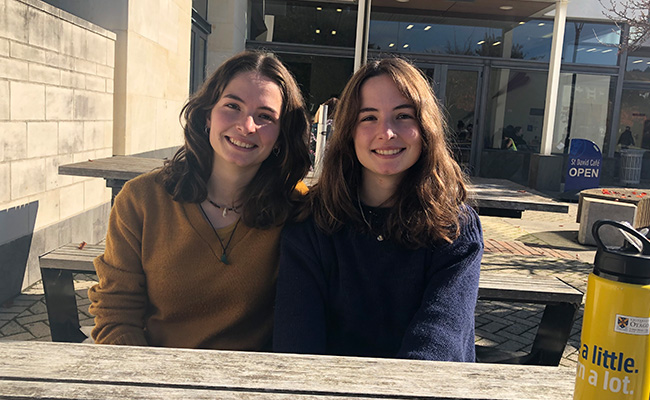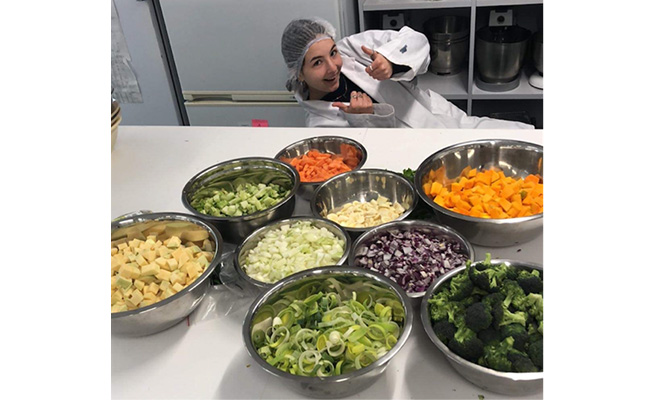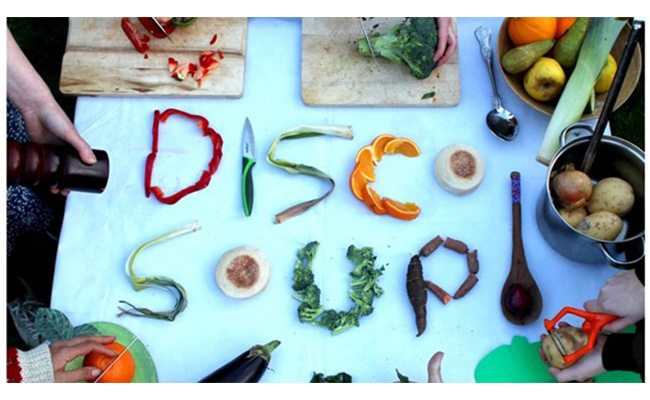
Meet the Otago sisters putting the disco into food that would otherwise be wasted.
A pair of Otago University student sisters are putting in the mahi to raise awareness about food waste and its impacts on the climate crisis.
For the past eight years, the Slow Food Network, and Slow Food Youth have organised annual Disco Soup Days across the globe, with the intention of demonstrating the size of the world's food waste problem.
Slow Food Youth Otago Co-President Zoe Barbenel said Slow Food Youth Otago held its first Disco Soup Day at the University last year.
“Disco soup is a soup made from perfectly good, nutritious food, which would otherwise have been thrown away.”
Zoe, who is studying a BSc in Physics and Environment and Society runs Slow Food Youth Otago with her sister Yuna, who is also studying a BSc in Physics, with a minor in Geography.
Zoe and Yuna run Slow Food Youth Otago along with their executive committee: Vice-president Supriya Sally, BSc Food Science and Entrepreneurship, Secretary Mary Jane Grove, BSc Environmental Management, and Social Media Manager Jasmine Prince, Bachelor of Dental Surgery.
This year, along with their executive committee, the sisters will run the Disco Soup event in the Link, on Friday 28 April.
There will be free soup for anyone who wants it, served from 12pm until it runs out, and live music from 1-2pm.
“Please bring a keep cup or something to put the soup in,” says Zoe, explaining that they don't want to have to contribute to the climate crisis via unsustainable disposable cups.

Prepping the disco soup for Disco Soup Day 2022.
“This free soup will be made from food nearing its expiry date, which is still absolutely safe to eat, but would otherwise have been thrown away,” says Yuna.
Some of the ingredients will be provided free by New World supermarket.
Kiwi Harvest will assess if it has anything left over to give after its usual donations closer to the event.
According to The World Counts, a project which aims to raise awareness of “critical global challenges”, a third of all food produced globally is wasted, amounting to 1.3 billion tonnes a year.
The Slow Food Network says food waste is one of these critical challenges and solving it could be an important tool in efforts to stop the climate crisis.
“This quantity of food waste is such an issue, because it means that a third of the energy intensive processes it takes to grow and distribute food, alongside packaging and storing, occur for absolutely no reason,” says Zoe.
The World Counts says food waste happens at several different points on the journey from field to table, and while some of this food isn't edible - such as crops affected by disease or food which is spoiled due to “ineffective harvesting or storing”- at least 35% of food waste is perfectly edible.
This perfectly edible food is discarded by supermarkets and households, often without being opened.
According to the UN Food and Agriculture Organisation this is happening in a world in which 3.1 billion people globally have limited access to healthy food, and over 800 million people per year go hungry.

Promotional image from Slow Food Youth's Disco Soup Day website.
Zoe says that projects such as Disco Soup Day help to draw attention to the fact that alongside working to limit food waste, the food which is being wasted can be repurposed, redistributed and eaten by those in need.
The Ministry for the Environment here in Aotearoa reports that approximately one in five kiwi children are going to school hungry and says working to resolve food waste could significantly reduce that figure.
To find out more about the Slow Food Network and Disco Soup click here, to find out more about the University of Otago's research into reducing food waste click here.
Kōrero by internal communications adviser Alice Billington
